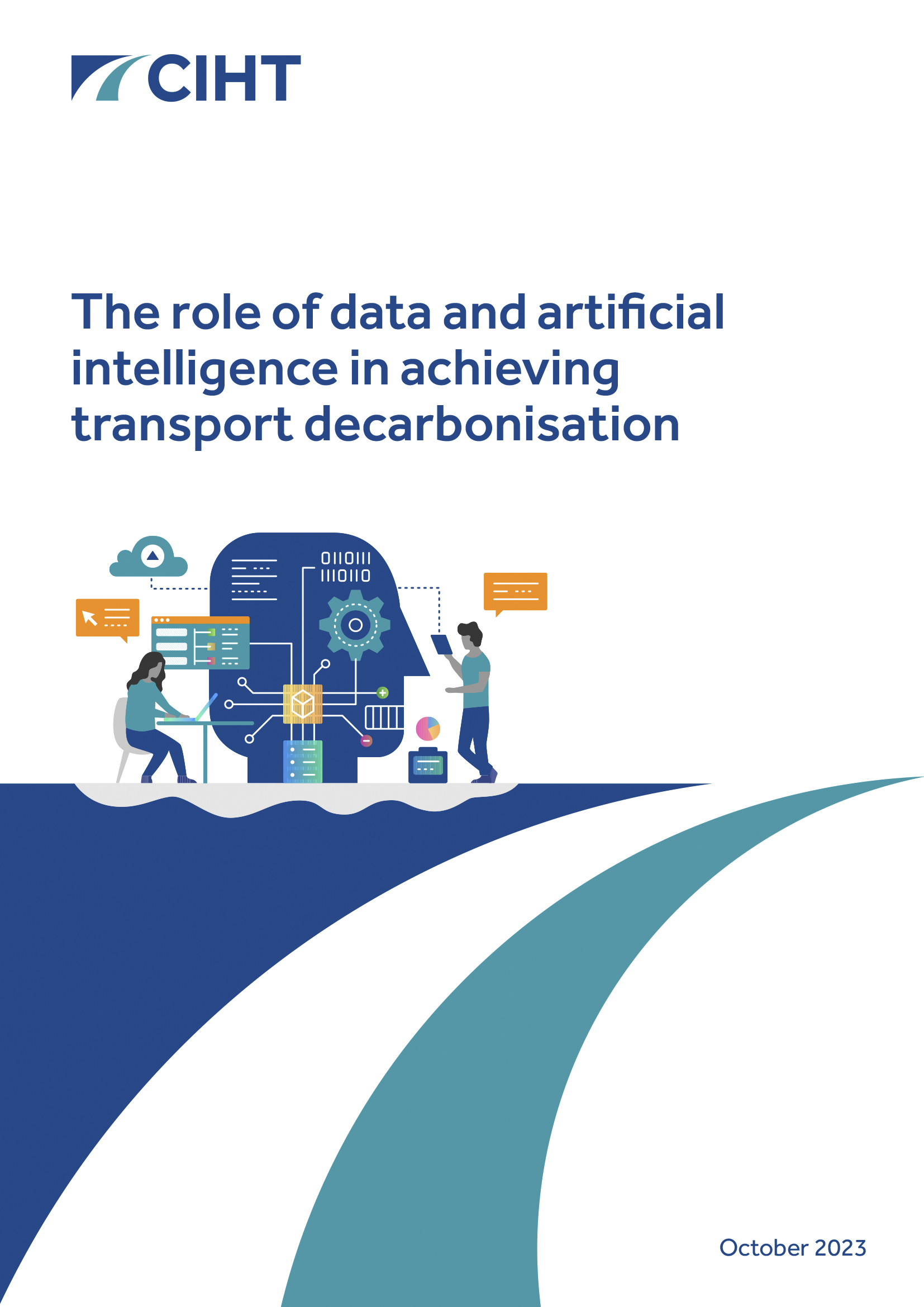

Join other savvy professionals just like you at CIHT. We are committed to fulfilling your professional development needs throughout your career
Artificial intelligence (AI) is a technology aimed at performing human-like tasks, such as perception, logic, and reasoning. AI is not a new phenomenon, but it is a topic that has recently been gaining greater attention and is becoming more common in our work and social lives than ever before.
There are many benefits AI can bring to the highways and transportation industry, especially when it comes to improving safety, providing more insightful transport planning, and efficient asset management, as well as improving the way the public experiences transport systems.
When it comes to decarbonisation, there are already examples of data and AI being used to:
However, there are also barriers we must overcome if AI is to be widely adopted in our industry, including:
This report intends to serve as an introduction to AI for the highways and transportation sector. We hope you gain a better understanding of what AI is, the importance of data for creating successful AI outputs, where AI is already being used in the transport sector, where it is likely heading, and what needs to be done to accelerate successful AI adoption.

>>> Click here to read the report
The project group was chaired by Jon Parker, member of CIHT’s Learned Society and Technical Strategy Board, and was made up of representatives from organisations in CIHT’s Partnership Network and CIHT Technical Champions.
Jon Parker, ITP (a company of Royal HaskoningDHV)
Simon Fraser, Balfour Beatty
Alex Walton, Arcadis
Steve Frost, Milestone Infrastructure
Amina Hamoud, University of the West of England
Wim Melis, University of Greenwich
Dan Rennison, Costain
Yousef Majeed, Arup
Kevin Carrol, Ringway
Andy Graham, CIHT Technical Champion
Nadia Lyubimova, Stantec
Syed Yaseen, CIHT Technical Champion
Petar Valchev, Ramboll
Andy Pickett, CIHT Technical Champion
Samer Karrar, London Borough of Newham
Recognition is also due to CIHT staff members, including Isobel Wilson and Joan Roemmele.
The CIHT Partnerships Network is a collaborative hub for leaders and decision makers in the highways and transport sector.
The network provides organisations and companies with the opportunity work in collaboration with the Institution as a charity, learned society and membership body to promote excellence across the highways and transportation sector.
>>> Click here to learn more about CIHT's Partnerships NetworkTechnical Champions are a highly valued group of individuals who CIHT turn to for their opinions.
By becoming a Technical Champion, you have the opportunity to join a network of leading voices in the sector, have your thoughts heard and share the work you are doing to provide better highways and transport systems.
>>> Click here to learn more about CIHT Technical Champions
If you have any questions please contact technical@ciht.org.uk
For media enquires please contact the CIHT Communications Team at communications@ciht.org.uk or +44 (0)20 7336 1555 (Option 4)
Join other savvy professionals just like you at CIHT. We are committed to fulfilling your professional development needs throughout your career
Sign up to the APM Newsletter.
